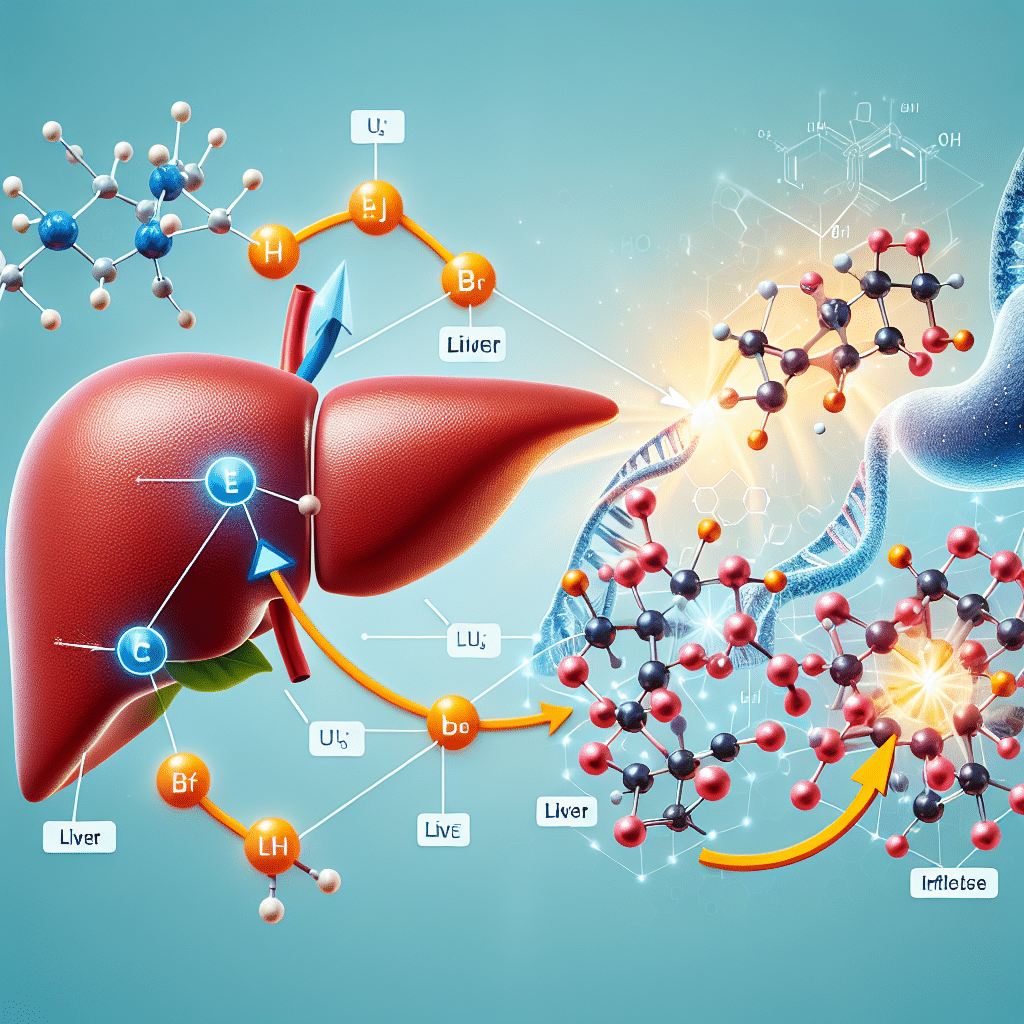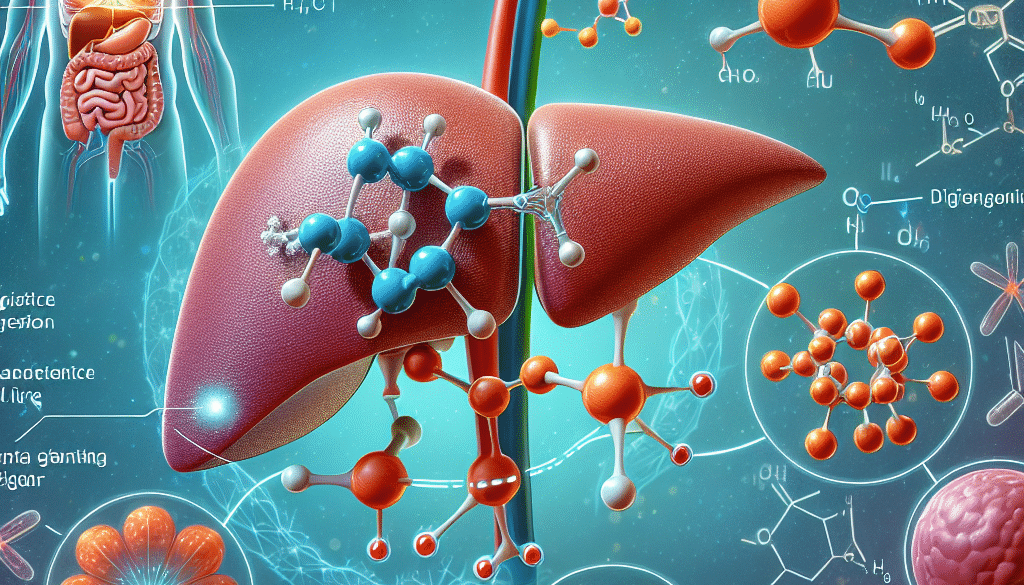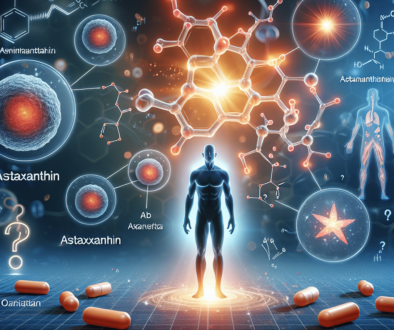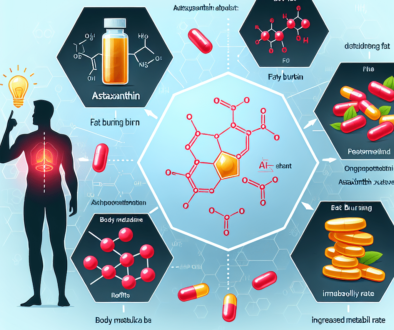Does astaxanthin affect the liver?
-
Table of Contents
- Astaxanthin and Liver Health: Exploring the Connection
- Understanding Astaxanthin
- The Liver’s Role in Health and Disease
- Research on Astaxanthin and Liver Health
- Case Studies and Clinical Trials
- Recommended Dosage and Safety
- Conclusion: Astaxanthin’s Potential Liver Benefits
- Discover ETprotein’s High-Quality Protein Products
Astaxanthin and Liver Health: Exploring the Connection

The liver is a vital organ with a myriad of functions essential for maintaining good health. It is responsible for detoxification, protein synthesis, and the production of biochemicals necessary for digestion, among other roles. Given its importance, the impact of dietary supplements on liver health is a topic of significant interest. Astaxanthin, a naturally occurring carotenoid known for its potent antioxidant properties, has been the subject of research regarding its effects on the liver. This article delves into the current understanding of how astaxanthin may influence liver health.
Understanding Astaxanthin
Astaxanthin is a keto-carotenoid that belongs to a larger class of phytochemicals known as terpenes. It is what gives salmon, shrimp, lobster, and some algae their distinctive pinkish-red hue. Unlike some other antioxidants, astaxanthin has the unique ability to span the entire cell membrane, providing comprehensive protection against oxidative stress.
The Liver’s Role in Health and Disease
The liver’s primary role is to filter blood coming from the digestive tract before passing it to the rest of the body. It also detoxifies chemicals and metabolizes drugs, secretes bile that ends up back in the intestines, and makes proteins important for blood clotting and other functions. Given its central role in metabolism and detoxification, the liver is susceptible to a range of diseases, including hepatitis, cirrhosis, and liver cancer.
Research on Astaxanthin and Liver Health
Several studies have investigated the effects of astaxanthin on the liver, with many suggesting potential benefits. Here are some key findings:
- Antioxidant Protection: Astaxanthin’s antioxidant properties may help protect liver cells from oxidative damage, which is a precursor to many chronic liver diseases.
- Anti-inflammatory Effects: Chronic inflammation is a hallmark of many liver conditions. Astaxanthin has been shown to reduce inflammatory markers in various studies, potentially benefiting those with liver inflammation.
- Non-Alcoholic Fatty Liver Disease (NAFLD): Astaxanthin has been studied in the context of NAFLD, a condition characterized by fat accumulation in the liver. Research suggests that astaxanthin may improve liver function and reduce fat accumulation in the liver.
- Alcoholic Liver Disease: Some animal studies indicate that astaxanthin may mitigate the effects of alcohol on the liver, reducing liver damage and inflammation.
- Fibrosis and Cirrhosis: Astaxanthin may have a role in preventing the progression of liver fibrosis, a condition that can lead to cirrhosis, by inhibiting the proliferation of hepatic stellate cells, which are involved in fibrosis.
While these findings are promising, it is important to note that many of the studies have been conducted on animals or in vitro, and more research is needed to fully understand the effects of astaxanthin on human liver health.
Case Studies and Clinical Trials
Human clinical trials and case studies provide valuable insights into the real-world effects of astaxanthin on liver health. For instance, a randomized controlled trial published in the “Journal of Clinical Biochemistry and Nutrition” found that supplementing with astaxanthin reduced markers of liver damage in patients with NAFLD. Another study in the “European Journal of Nutrition” reported that astaxanthin supplementation improved liver enzyme levels and lipid profiles in obese individuals.
Recommended Dosage and Safety
The recommended dosage of astaxanthin varies depending on the individual and the condition being addressed. Most studies have used doses ranging from 6 to 12 mg per day. Astaxanthin is generally considered safe, with no significant side effects reported at these levels. However, as with any supplement, it is crucial to consult with a healthcare provider before starting astaxanthin, especially for individuals with pre-existing liver conditions or those taking medications that affect the liver.
Conclusion: Astaxanthin’s Potential Liver Benefits
In conclusion, astaxanthin appears to offer several potential benefits for liver health, including antioxidant protection, anti-inflammatory effects, and possible improvements in conditions like NAFLD and alcoholic liver disease. However, further research, particularly large-scale human clinical trials, is needed to confirm these benefits and establish clear guidelines for its use in liver health.
Discover ETprotein’s High-Quality Protein Products
If you’re looking to enhance your health regimen, consider exploring ETprotein’s range of high-quality protein products. Their offerings, including organic rice protein, pea protein, and various seed proteins, are characterized by a neutral taste, non-GMO, and allergen-free attributes. ETprotein also supplies L-(+)-Ergothioneine (EGT) in various grades suitable for nutraceutical, pharmaceutical, and cosmeceutical applications. These products can complement a healthy diet and support overall well-being, including liver health.
About ETprotein:
ETprotein, a reputable protein and L-(+)-Ergothioneine (EGT) Chinese factory manufacturer and supplier, is renowned for producing, stocking, exporting, and delivering the highest quality organic bulk vegan proteins and L-(+)-Ergothioneine. They include Organic rice protein, clear rice protein, pea protein, clear pea protein, watermelon seed protein, pumpkin seed protein, sunflower seed protein, mung bean protein, peanut protein, and L-(+)-Ergothioneine EGT Pharmaceutical grade, L-(+)-Ergothioneine EGT food grade, L-(+)-Ergothioneine EGT cosmetic grade, L-(+)-Ergothioneine EGT reference grade and L-(+)-Ergothioneine EGT standard. Their offerings, characterized by a neutral taste, non-GMO, allergen-free attributes, with L-(+)-Ergothioneine purity over 98%, 99%, cater to a diverse range of industries. They serve nutraceutical, pharmaceutical, cosmeceutical, veterinary, as well as food and beverage finished product distributors, traders, and manufacturers across Europe, USA, Canada, Australia, Thailand, Japan, Korea, Brazil, and Chile, among others.
ETprotein specialization includes exporting and delivering tailor-made protein powder and finished nutritional supplements. Their extensive product range covers sectors like Food and Beverage, Sports Nutrition, Weight Management, Dietary Supplements, Health and Wellness Products, and Infant Formula, ensuring comprehensive solutions to meet all your protein needs.
As a trusted company by leading global food and beverage brands and Fortune 500 companies, ETprotein reinforces China’s reputation in the global arena. For more information or to sample their products, please contact them and email sales(at)ETprotein.com today.











